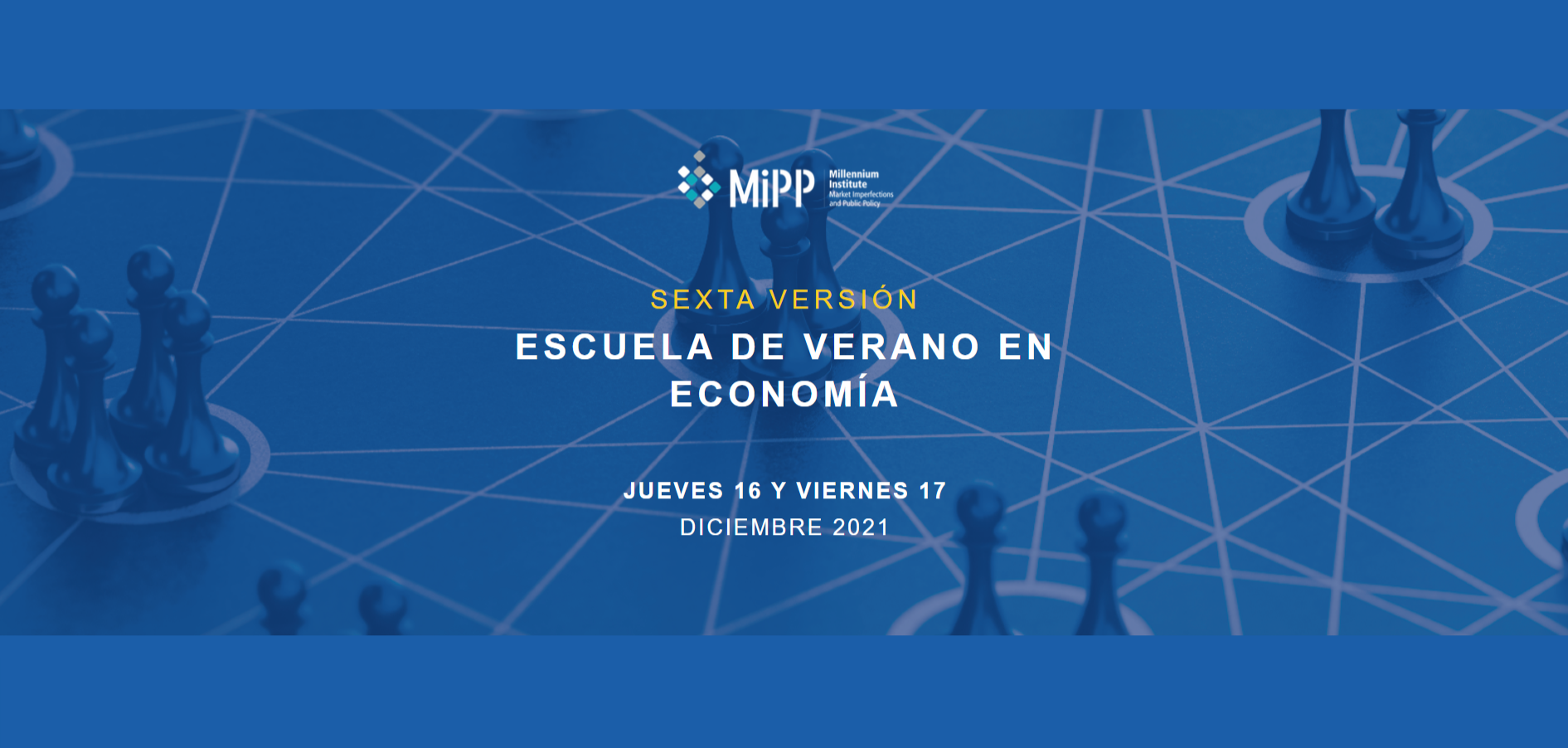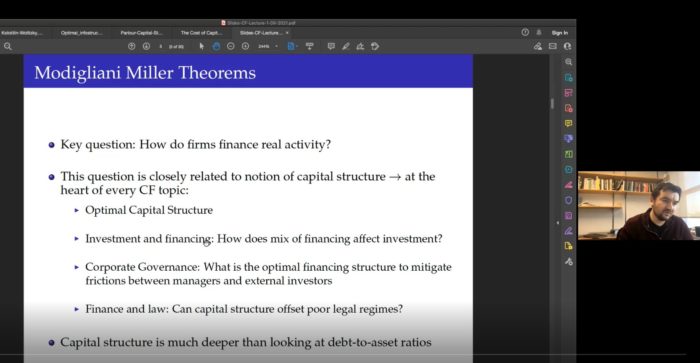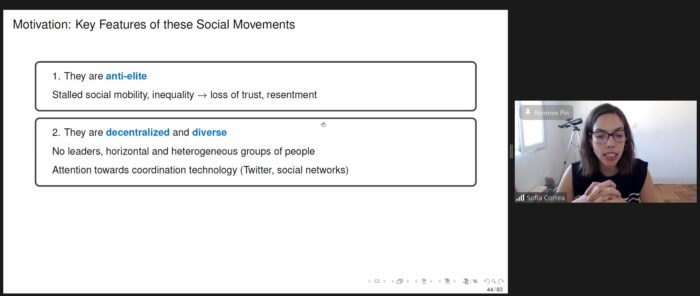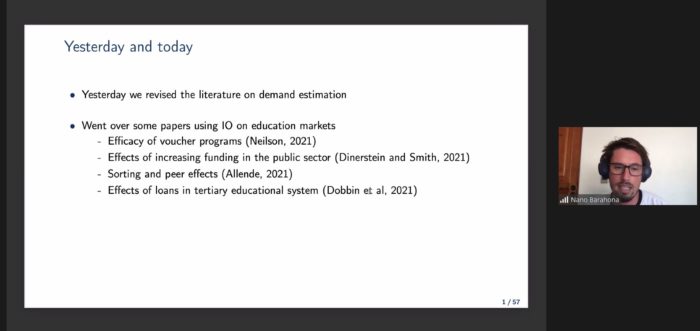
The MIPP Millennium Institute, together with the Doctorate in Engineering Systems (DSI) and the Master in Applied Economics (MAGCEA) of the Faculty of Physical and Mathematical Sciences annually organize the “Summer School in Economics”, aimed at postgraduate students and students at an advanced stage in their undergraduate degree who have an interest in economics and related disciplines.
This year’s version included the participation of more than 30 students from different Latin American countries such as Mexico, Peru, Argentina, and Chile. Through the ZOOM platform on December 16 and 17, 2021, the students were introduced to more advanced topics in economics and its applications.
Nicolás Inostroza, academic at the Rotman School of Management – University of Toronto, Nano Barahona, Postdoctoral Researcher at the University of California, Berkeley, and Sofía Correa, Assistant Professor at the Department of Industrial Engineering FCFM, UCHILE, were in charge of teaching the courses on the following topics:



Under this framework, for four days, the students were able to cross their boundaries and advance their knowledge of economics. “I really liked the classes. The courses on public policy and protests caught my attention, since, due to the current context, it is very important to find a way to make an impact on the improvement of society,” said one of the students.
Finally, the experience also proved useful to the students who are considering pursuing an academic career, as they received firsthand information on the postgraduate application process and the starting of an academic career, as well as valuable advice provided as a guide by the academics to Chile’s future academics and intellectuals.

MIPP Chile 2025